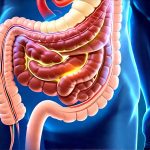Irritable Bowel Syndrome (IBS) is a common gastrointestinal disorder that affects millions worldwide, characterized by abdominal pain, bloating, gas, diarrhea, and constipation – often fluctuating between these symptoms. The exact causes of IBS are complex and not fully understood, but it’s believed to involve a combination of factors including gut motility issues, visceral hypersensitivity (increased sensitivity to sensations in the gut), brain-gut interactions, psychological stress, and diet. Living with IBS can significantly impact quality of life, leading to discomfort, anxiety, and social limitations.
Understanding potential contributing factors to IBS flares and symptom severity is crucial for effective management. While dietary adjustments and stress reduction techniques are frequently recommended, the role of lifestyle habits such as smoking often gets overlooked or underestimated. This article will explore the existing research connecting smoking with IBS, examining how nicotine and other components of cigarette smoke may influence gut health and potentially exacerbate symptoms in individuals predisposed to this condition.
The Link Between Smoking and Gastrointestinal Health
Smoking is widely recognized as detrimental to overall health, impacting cardiovascular, respiratory, and even neurological systems. However, its effects extend significantly into the gastrointestinal tract, beyond simply increasing the risk of conditions like ulcers or colorectal cancer. Cigarette smoke contains thousands of chemicals, many of which can directly irritate the gut lining, disrupt the delicate balance of the gut microbiome, and alter intestinal permeability – often referred to as “leaky gut.” These disruptions can contribute to inflammation and heightened sensitivity within the digestive system.
The physiological changes induced by smoking aren’t limited to direct irritation; they also affect blood flow. Smoking constricts blood vessels, reducing oxygen supply to the intestines, which can further compromise their function and increase vulnerability to damage. This is particularly relevant for individuals with pre-existing conditions like IBS where gut health is already compromised.
Potential Mechanisms of Impact
The relationship between smoking and IBS isn’t straightforward; it’s likely multifaceted. The influence extends beyond nicotine addiction itself, encompassing the chemical composition of cigarette smoke and its systemic effects on the body. Several interconnected pathways appear to be at play, impacting both the physical structure and functional operation of the gut.
Gut Microbiome Disruption
The gut microbiome – the community of trillions of bacteria residing in our intestines – plays a critical role in digestion, immune function, and overall health. Smoking has been demonstrably linked to alterations in the composition and diversity of this microbial ecosystem. Studies have shown that smokers tend to have lower bacterial diversity compared to non-smokers, with certain beneficial bacteria being reduced while potentially harmful bacteria may proliferate. This imbalance (dysbiosis) can contribute to increased inflammation, impaired gut barrier function, and altered bowel habits – all hallmarks of IBS. The specific changes in microbiome composition can vary depending on smoking duration and intensity, as well as individual factors.
Visceral Hypersensitivity & Brain-Gut Axis
Individuals with IBS often experience visceral hypersensitivity, meaning they are more sensitive to stimuli within the gut compared to individuals without the condition. This heightened sensitivity contributes to the perception of pain and discomfort even with normal levels of intestinal distension. Smoking may exacerbate this hypersensitivity through multiple mechanisms. Nicotine itself can directly impact nerve endings in the gut, increasing their responsiveness to stimuli. Furthermore, smoking influences the brain-gut axis – the bidirectional communication pathway between the brain and the digestive system. By altering neurotransmitter levels and influencing stress responses, smoking can amplify pain perception and contribute to the cyclical nature of IBS symptoms.
Increased Intestinal Permeability (“Leaky Gut”)
The intestinal barrier acts as a selective gatekeeper, allowing nutrients to be absorbed while preventing harmful substances from entering the bloodstream. Smoking compromises this barrier function, increasing intestinal permeability – often referred to as “leaky gut.” This allows undigested food particles, bacteria, and toxins to cross into the bloodstream, triggering an immune response and contributing to chronic inflammation. The resulting systemic inflammation can worsen IBS symptoms, exacerbating abdominal pain, bloating, and changes in bowel habits. Long-term smoking appears to significantly increase this permeability, making individuals more susceptible to both digestive issues and broader health problems.
Ultimately, understanding these complex interactions between smoking and the gut is crucial for developing effective management strategies for individuals with IBS. While quitting smoking remains the most impactful step towards improving overall health, recognizing its potential role in exacerbating IBS symptoms can empower patients to make informed lifestyle choices and seek appropriate support. It’s important to remember that individual responses to smoking vary; however, the preponderance of evidence suggests a strong link between this habit and worsened gastrointestinal function.


















